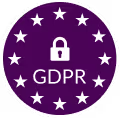Career Coaching
Many professionals turn to career coaching when they are looking to make some kind of change in their careers. And, like with career pathing, career coaching serves not only the employee – it’s also highly beneficial to companies.
What Is Career Coaching?
Career coaching is the engagement of an external expert, typically a dedicated coach, to guide an employee in their career choices and help them with challenges in the workplace. Some career coaches can also be used for advice about resumes, negotiations, and interviews.
Career coaches are sometimes seen as a type of counselor. However, there are important differences between the two. Career counselors engage in various tests and interviews to provide advice over the course of a few sessions.
In comparison, a coach establishes a comparatively long relationship with a client, getting to know them thoroughly. Together, the coach and client examine a multitude of options before choosing a path, and they remain in touch for further advice even after the employee takes on a new role.
Why Employees Benefit from Career Coaching
These are some of the most common methods for getting career advice:
- Approaching successful peers or potential mentors within an organization
- Independent research
- Psychological and career counseling
- Working with an HR department
What’s unique about working with a coach is that the process is free of the bias that can arise when consulting with someone who already knows the employee. Anybody who is personally familiar with a candidate might have preconceived notions of what they can achieve, while a coworker can be predisposed towards the welfare and workforce goals of the organization.
In comparison, coaches must be objective in order to be effective. A coach also enables a sense of accountability from their client, a factor that greatly improves the chance of success.
Finally, because a career coach is constantly exposed to new ideas, common dilemmas, and best practices, they have a greater reserve of knowledge from which to draw advice. This is as opposed to the average employee who only thinks about career issues occasionally.
Career Coaching: Advantages for the Organization
But what about the company? Here too, there are many advantages to hiring a career coach. Organizations that support career coaching enjoy benefits like higher retention rates, increased productivity, and improved managerial capabilities.
Perhaps the greatest benefit for companies is that career coaching reduces the chance of managerial failure. According to Gartner, 75% of managers feel overwhelmed, and 69% of managers cannot lead change management initiatives. Obviously, many managers take up their roles without enough thought or preparation.
Career coaching avoids these problems in advance by examining if a managerial candidate has the tools to succeed. If not, the coach and HR might recommend customized professional development programs to close the employee’s skill gaps.
The World of Career Coaching
It is projected that the global career coaching market will grow at a rate of 11.2% between 2023 and 2032, at which point it will reach a value of USD 6.8 billion. The expansion of this market is due to multiple factors, including:
- The greater frequency of changing careers and moving between companies. Forbes explains that more than 22% of adult employees quit within a year of starting their jobs.
- The high turnover rate of workplace skills which results in more demand for upskilling advice. The growth of technology in the workplace is a particular issue here, with 92% of jobs requiring related technical skills, but with proficiency rates at approximately 33%.
- The increasing importance of soft skills. It is not easy for people to analyze their own level of soft skill proficiency. A coach with a neutral point of view is a valuable resource for evaluating their client’s non-technical abilities.
- The availability of talent development technologies as a way for coaches and potential clients to search for each other, communicate during their engagement, and access learning and development programs to increase professional skills.
Career Coaching Is Not Just for Emergencies
Many people turn to a career coach only when they feel as though they have run out of options in their current role. Yet it’s better to turn to career coaching before reaching this point – even when a person’s current career path is going well. The desperation of ‘reaching a dead end’ can result in poor choices, particularly in terms of seeing opportunities with the existing employer.
Getting advice from a career coach when times are good can result in a calmer process and better decisions. For this reason, organizations should encourage employees to access a career coach, either on their own or through the HR/L&D department.
A career coach can help a client to:
- Prepare for increased responsibilities, particularly the movement to a managerial position
- Examine new avenues at their current workplace, perhaps by shifting departments or moving to a different location
- Identify personal and professional skill gaps in the face of technology advances and preferences for certain soft skill development courses
Career Coaching and Leadership Coaching
There is sometimes a close connection between career development and leadership programs. Career development is a process that identifies a pathway for employees based on what the organization needs, what the employee wants to do, and the skills they bring to the table. If HR determines that a worker has leadership skills, then their career path will include training programs that give them the tools to round out their abilities.
But not every employee knows what they want to do. Even some experienced executives might be unsure of their next step. So, a talented leadership coach will be engaged to help employees define their best choices.
Then, the coach will support them to gain more insights about their way forward as a leader. In this sense, a leadership coach should have the ability to bring some career coaching expertise into their engagement.
The Process of Career Coaching
The typical setting of a career coaching session is a one-on-one meeting. While in the past career coaching was typically conducted in person, virtual sessions are becoming more common and allow for a wider variety of options, as you can hire a career coach from anywhere in the world.
Each session lasts about an hour and takes place at least once a month. Sessions might be more frequent if the employee rapidly achieves an action item, which is a popular method used by coaches to propel their clients towards a major goal. An employee who wants to move quickly will meet more often with a coach.
Remember that career coaching has a lot at stake, as it involves somebody’s future and the direction that they might take for the rest of their professional lives. Taking your time with periodic sessions will give you a chance to thoroughly contemplate your choices and make a decision that is not affected by pressure.
Initial meetings consist of assessments and discussions regarding work history, personal life, and current professional challenges. The coach then guides the client towards hypothetical career destinations, often through the use of a coaching model such as GROW or OSKAR.
Another unique aspect of coaching is that the client ultimately decides which path to take; the role of the coach is to cooperatively investigate the practicality of each step and eventual goal. The method involves more of a question-answer format than actual advising.
Different Types of Career Coaching
Every employee has their unique strengths and weaknesses. For this reason, a career coach should have the ability to address the three basic areas where their client might need advice:
Career Pathing
This involves examining different options for professional growth and determining if the client’s abilities and preferences match.
Skills
This requires looking at a client’s “skill inventory” to check if they have most of the abilities needed for success in their targeted role. If not, the coach can recommend learning and development programs.
Expectations
This means discussing what challenges the candidate will face when they take on a new role. It might include a different work/life balance, stress, office politics, and exposure to new methods. Because this type of advising covers issues outside the workplace, a life coach might also be a good choice for people who are interested in evaluating their career path.
Grow Your Career Coaching with Growthspace
The long-term engagement of a career coach requires a good personal connection with the employee. Any extended contract tends to be expensive, so finding coaches of the highest quality is necessary for ROI. That’s why it is imperative to match leading coaches with clients with whom they can easily interact.
Growthspace’s precision skill development platform connects employees with top-notch career coaches who have been vetted according to specialty, success rates, and client review rankings. Growthspace makes it easy for organizations of any size to source the best coaches for their needs and implement efficient and effective L&D programs.















